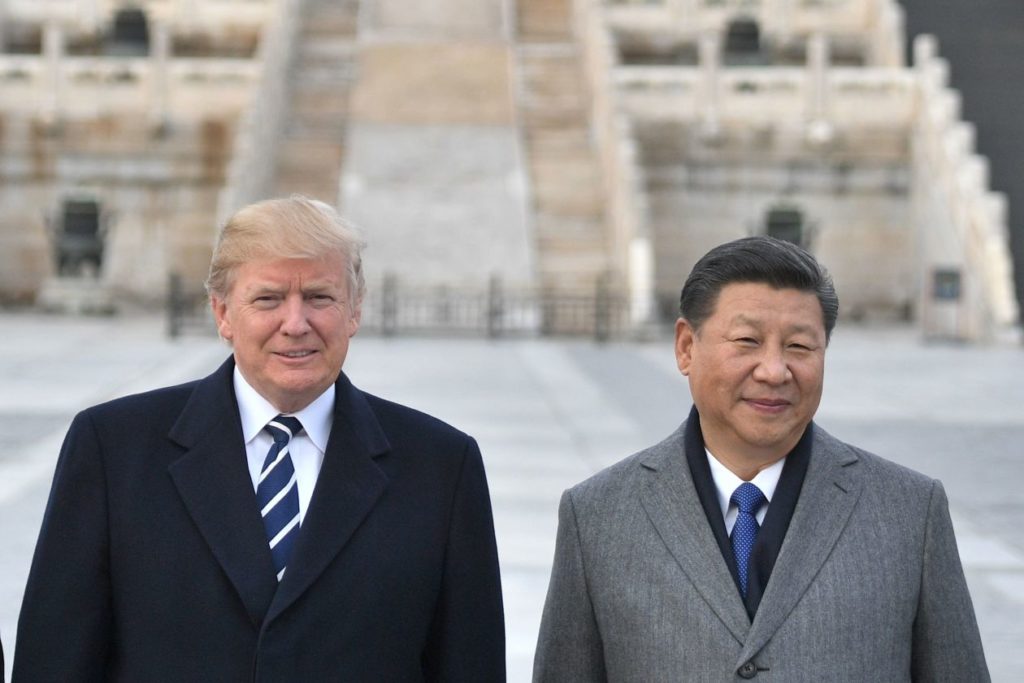The incentives for a deal are overwhelming on both sides.

President Trump roiled financial markets Monday with his threats to impose a new round of tariffs on China as trade talks hit an impasse. We’re about to find out if tariff brinksmanship pays off in a productive deal or ends in mutual escalation that will hurt both countries.
Mr. Trump’s unilateral tariffs have had a scattershot logic focused on the dubious measure of the U.S. trade deficit. He has picked needless fights with allies over steel and aluminum. But the one country where there is a plausible justification is China. Beijing has too often violated the global trading rules it agreed to and profits from. It steals trade secrets and intellectual property and handicaps foreign companies with punitive regulation. Chinese abuses have undermined political support for free trade in the U.S.
Marshaling a united front with allies toward Beijing would have been better, but Mr. Trump is a unilateralist and his household remedy is tariffs. There’s no denying that his border taxes on Chinese goods have prodded Beijing to negotiate, though tariffs have also imposed costs on U.S. consumers and producers, especially in agriculture. The tariffs will be destructive unless they lead to a deal that causes China to cease its predatory behavior.
Mr. Trump and Chinese President Xi Jinping both want a deal but neither wants to be seen as conceding too much. Mr. Trump needs a deal to remove the trade uncertainty that dozens of CEOs say has slowed business investment. The President’s Sunday claim on Twitter that his tariffs are one reason for the strong U.S. economy is the opposite of reality. The economy is growing despite the tariffs, and U.S. manufacturing jobs have declined this year in part because of China’s slowdown.
Mr. Trump needs a strong economy as he seeks re-election, and a good China deal would double as a foreign-policy success. With change in North Korea and Venezuela looking doubtful, a China trade agreement may be his only foreign breakthrough. It would also fulfill a major 2016 campaign promise.
Mr. Xi arguably needs a deal even more than Mr. Trump. U.S. tariffs have hurt Chinese exports but China also suffers from a domestic debt overhang and misallocation of capital. Liu He, Mr. Xi’s chief economics adviser, understands that China needs more economic liberalization. A trade deal can help rebut nationalists in Beijing who want to maintain the mercantilist status quo.
A collapse of the talks risks a sharper Chinese economic decline and even political instability. Mr. Xi has sold his presidency on a return to Chinese greatness, but the trade brawl is already causing some global businesses to move production from China to other countries. Mr. Xi may want to dominate the world but meantime he needs an economy that provides jobs for millions of new workers each year.
The rub of the talks is that Mr. Xi has to concede more than Mr. Trump does—without being embarrassed in the process. China already has largely free access to the U.S. market and rule of law. China’s main demand is that Mr. Trump lift his tariffs, which is reasonable if China agrees to cease its multiple trade violations. This includes protections for IP, a reduction in tariff rates toward U.S. levels, a reduction in subsidies for state-owned companies, more liberal rules for joint ventures, and an end to cyber theft.
The U.S. also wants enforcement provisions written into the agreement in case China cheats, as it often has before. This includes the right to impose tariffs without a compensating right of China to retaliate. This also seems to be one of the main sticking points.
With an eye on his re-election, Mr. Trump wants a deal that is strong enough to blunt the inevitable criticism from Democrats that he didn’t deliver enough. This would take chutzpah since Democrats have been attacking Mr. Trump’s tariffs. But Democrats like Chuck Schumer and Bernie Sanders are sore that Mr. Trump outflanked them as protectionists, and they’ll attack any deal he strikes. Mr. Trump should win that argument as long as the deal’s details are credible to trade experts and American businesses.
***
The Trump Administration kept up its brinksmanship on Monday, as White House trade negotiator Robert Lighthizer said China is “reneging” on its previous commitments and the new tariffs will hit on Friday. We have entered the storm before the calm if both sides can see through past the threats to their mutual trading self-interest.
The Chinese shouldn’t underestimate how much U.S. opinion has hardened toward their practices across the ideological spectrum. A deal with Mr. Trump may be the best chance the Chinese have to avoid a protectionist eruption against them in Congress.
As for Mr. Trump, repealing his tariffs in return for major Chinese policy changes is well worth the trade. He’ll have won concessions without giving up anything other than the tariffs he said he imposed only as leverage. The alternative could be ugly. China will suffer from an all-out trade war, but so will the U.S. and the Trump Presidency.
Source: The Wall Street Journal, May 6, 2019 | The Editorial Board